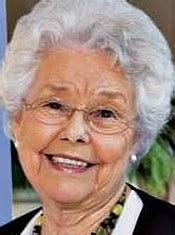A Quote by Michael Scott
I am of the generation of writers who can get instant feedback from readers within hours of publication. The fan forum is extraordinary - readers from all over the world coming together to discuss, argue and debate scenes and characters from a novel. They add a layer to the story that I cannot write and yes, I will participate in that conversation and answer questions. After all, they are the people I'm writing for and their enthusiasm and questions really pushes me to raise the bar.
Quote Topics
Add
After
Am
Answer
Argue
Bar
Cannot
Characters
Coming
Coming Together
Conversation
Debate
Discuss
Enthusiasm
Extraordinary
Fan
Feedback
Forum
Generation
Get
Hours
Instant
Layer
Me
Novel
Over
Participate
People
Publication
Pushes
Questions
Raise
Readers
Really
Scenes
Story
Together
Will
Within
World
Write
Writers
Writing
Yes
Related Quotes
I get letters from two kinds of readers. History buffs, who love to read history and biography for fun, and then kids who want to be writers but who rarely come out and say so in their letters. You can tell by the questions they ask - How did you get your ?rst book published? How long do you spend on a book? So I guess those are the readers that I'm writing for - kids who enjoy that kind of book, because they're interested in history, in other people's lives, in what has happened in the world. I believe that they're the ones who are going to be the movers and shakers.
I'm not a writer who's preaching some particular philosophy or something but the big questions do concern me and I like to make my readers think and debate and argue with each other and look at some aspect of the world or some act of governance or war or power and have an angle they haven't considered before, and that's something I strive for and hopefully have accomplished.
When writers are self-conscious about themselves as writers they often keep a great distance from their characters, sounding as if they were writing encyclopedia entries instead of stories. Their hesitancy about physical and psychological intimacy can be a barrier to vital fiction. Conversely, a narration that makes readers hear the characters' heavy breathing and smell their emotional anguish diminishes distance. Readers feel so close to the characters that, for those magical moments, they become those characters.
Books are just dead words on paper and it is the readers who bring the stories alive. Previously, writers wrote a book and sent it out into the world. A couple of months after publication letters from readers might arrive. And, leaving aside the professional reviews, it is really the reader's opinions that the writer needs. They vote for a book - and a writer - with their hard earned cash every time they go into a bookstore (or online - that's my age showing!) and buy a book.
People will ask me, "How do you approach writing books for young readers differently than for adults?" My answer is always: I don't change anything about the story itself. I'm going to tell kids the way things really were. What I don't do - and this is the only thing I do differently in writing for kids - is that I don't revel in the gory details. I allow readers to fill in the details as necessary. But I don’t force kids to have to digest something they’re not mature enough or ready for yet. If they are, they can fill in the details even better than I could, just with their imaginations.
All I did was collect a few of the questions I've been asked through the years, write up a brief response and put them in this publication. As a pastor, you get asked questions and receive emails. Many of them I had answered, but just in conversation. So we kind of re-crafted the question and answered it. It turned out to be an interesting exercise. I hope it's encouraging for people.
What is bad? What is good? What should one love, what hate? Why live, and what am I? What is lie,what is death? What power rules over everything?" he asked himself. And there was no answer to any of these questions except one, which was not logical and was not at all an answer to these questions. This answer was: "You will die--and everything will end. You will die and learn everything--or stop asking.




































